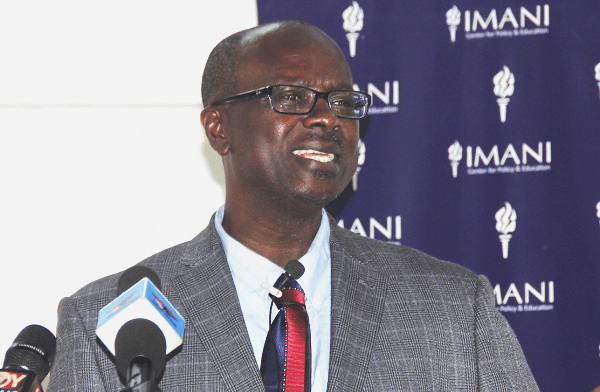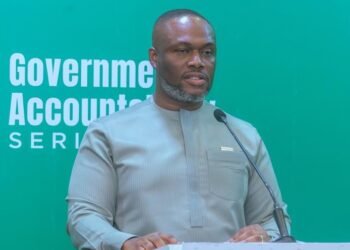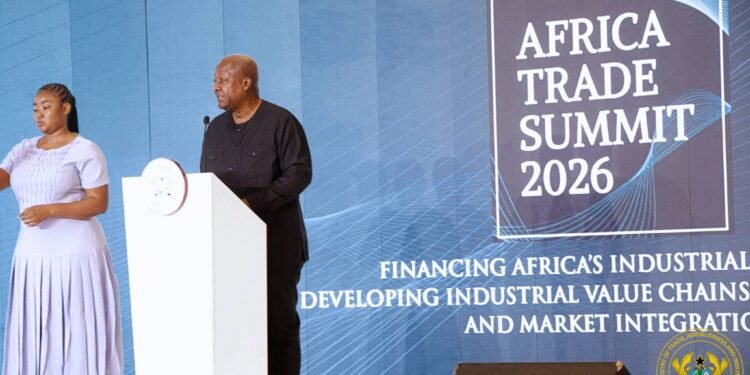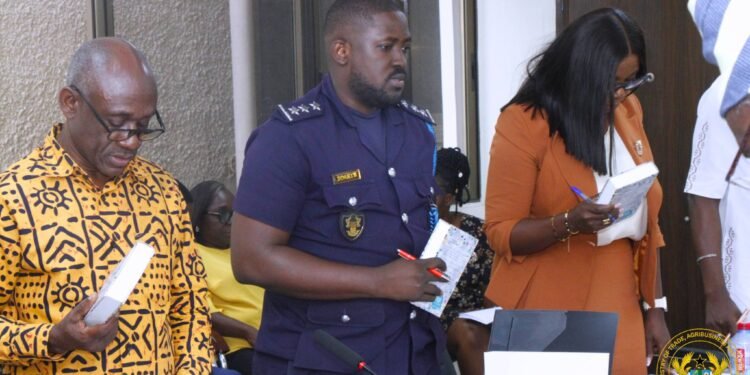In the aftermath of an election that starkly revealed the electorate’s disillusionment with government and public institutions, Professor Stephen Kwaku Asare, Democracy and Development Fellow in Public Law and Justice at the Centre for Democratic Development (CDD-Ghana) has presented a visionary roadmap for smart governance.
His proposals, rooted in efficiency, transparency, and accountability, challenge the President-Elect, John Dramani Mahama to abandon the status quo and usher in a transformative era of governance.
“As in the past, GOGO urges the President-elect to streamline the ministries to just 20 and appoint non-parliamentarian ministers with parliamentary deputies to meet constitutional requirements.”
Professor Stephen Kwaku Asare, Democracy and Development Fellow in Public Law and Justice at the Centre for Democratic Development (CDD-Ghana)
The proposal was built on four strategic pillars: lean and focused structure, non-parliamentarian ministers, strategic ministerial grouping and parliamentary deputies.
On a lean and focused structure, the renowned constitutional and good governance activist asserted that a reduced number of ministries would minimise overlaps and encourage efficiency.
At the same time, on non-parliamentarian ministers, he posited that such separation allows ministers to dedicate their time to governance without the distractions of parliamentary duties.
Also, Professor Asare noted that on strategic ministerial grouping related functions would be merged, fostering synergy and reducing redundancy while under parliamentary deputies these deputies would ensure parliamentary input while maintaining the independence of the executive.

Steps to Rebuilding Trust and Institutionalizing Accountability
To regain public confidence, Professor Asare advocated a comprehensive set of reforms that prioritize measurable outcomes and active citizen engagement.
The first is setting SMART objectives and KPIs. Here Professor Asare opined that ministries must establish clear, specific, measurable, achievable, relevant, and time-bound (SMART) objectives.
“For example, for the agriculture ministry, increase food security by X% in two years. For the environment ministry, restore 50% of lands degraded by galamsey within 2 years (measured in hectares), etc. These KPIs should be published on a public performance dashboard accessible to all citizens.”
Professor Stephen Kwaku Asare, Democracy and Development Fellow in Public Law and Justice at the Centre for Democratic Development (CDD-Ghana)
The second recommendation is an annual ministerial review with Professor Asare indicating that each year, ministers would present their progress in public reviews. These reviews, independently assessed by the Public Service Commission and the Auditor-General, would culminate in a published State of the Ministry Report.
Professor Asare further called for performance-based contracts, asserting that ministers ought to sign contracts outlining expectations and consequences for underperformance. He pointed out that their tenure would directly depend on achieving key performance indicators (KPIs).
He also advocated for public feedback loops and strongly posited that establishing accessible feedback channels such as hotlines, apps, and town halls would empower citizens to report inefficiencies and corruption.
“To provide assurance and evidence that actions are taken on citizen-reported inefficiencies and corruption, there must be an online easy-to-access and functional ministry-by-ministry feedback tracker showing resolved issues.”
Professor Stephen Kwaku Asare, Democracy and Development Fellow in Public Law and Justice at the Centre for Democratic Development (CDD-Ghana)
Moreover, the CDD-Ghana Fellow called on the incoming administration to strengthen oversight of state bodies, asserting that institutions like the Auditor-General’s office must be empowered to conduct continuous audits. Oversight reports should be user-friendly and available in local languages.
Professor Asare in addition urged the President-Elect to institute whistleblower protections and rewards, arguing that encouraging citizen participation in governance would require robust protections and incentives for whistleblowers. Verified reports of corruption would be anonymized and published, along with actions taken.
Last but not least, Professor Asare demanded enhanced parliamentary oversight, suggesting that parliamentary deputies could deliver quarterly updates on ministry performance to Parliament. These sessions would be broadcast live and include public testimonies.
Among several other recommendations, Professor Asare called for a national digital transparency portal that would provide real-time updates on ministry progress, KPIs, and budget utilization..
He also called for a clear system of consequences for non-performance—including reprimands, dismissal, and prosecution, adding that an Annual Accountability Report would name underperforming ministries and outline actions taken.
Professor Asare underscored that the President-Elect’s mandate is to rebuild citizens’ trust and establish a governance model that prioritizes transparency and measurable impact.
“The President-elect’s task is to govern in a way that restores this confidence. The plan here can rebuild citizens’ trust, enhance performance and will create a transparent and accountable system that endures beyond the administration.”
Professor Stephen Kwaku Asare, Democracy and Development Fellow in Public Law and Justice at the Centre for Democratic Development (CDD-Ghana)
Institutionalising these reforms in the view of Professor Asare would allow the incoming administration to transition from rhetoric to tangible results, setting a standard for future governments.
READ ALSO: Beyond Tax-to-GDP Ratios: Prof. Bokpin’s Roadmap for Ghana’s Development























